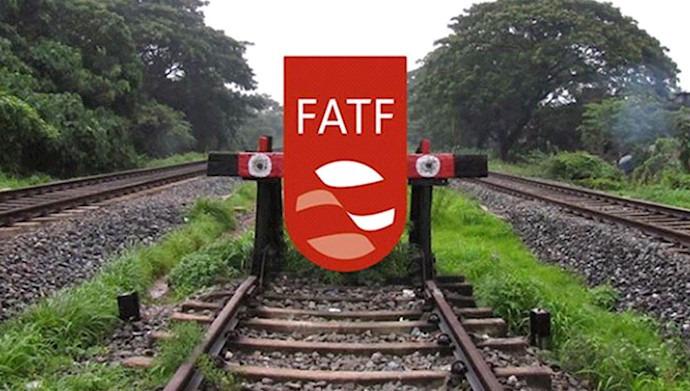Analysis by PMOI/MEK
Feb. 19, 2019 – Last Sunday, the Iranian regime passed a deadline to pass the necessary bills to conform to international anti-money-laundering laws and standards established by the Financial Action Task Force (FATF). At least two of the bills are still in limbo, effectively putting Tehran at risk of being blacklisted by the de facto international money-transaction transparency body.
A day earlier, the Iranian regime’s Expediency Council had a meeting to decide the fate of the bills in question, which were already passed in the Majlis (parliament) but rejected by the Guardian Council, the body which vets parliamentary legislations against the regime’s so-called Islamic laws. Fierce opposition on both sides of the Iranian ruling elites made a successful vote impossible, tossing the issue into the court of Expediency Council, the institution that is tasked with resolving conflicts between the Majlis and Guardian Council.
Ahmad Tavakkoli, member of the Expediency Council, said about the council’s meeting: “In the meeting, 12 members have spoken in favor or against the [Palermo] bill, but considering that the number of members who wanted to talk about this bill was big, not everyone was able to talk. So, it was decided that the review will continue in the next session of the Council, which will take place in two weeks.”
Mohsen Rezaee, Secretary of the Expediency Council, said: “Western and European countries have obstructed our financial provision, but they say let’s have financial transactions.”
“So, when your banks don’t work with us, how do you expect our banks to have financial transactions with you? In fact, this financial channel that the Europeans have created isn’t a financial channel but a goods [exchange] channel. Meaning they take our oil and give us goods in exchange and mistakenly, they have named it financial channel,” Mohsen Rezaee further said in his statements that were broadcasted on state-run national television.
“So, from the dishonesty of the West and coercion of their demands on our country, one can understand that they aren’t even willing to give us our own money and that’s why we are suspicious about these demands in the case of Combatting the Financing of Terrorism (CFT) and Palermo and we asked the government and the parliament to respond frankly to the Expediency Council’s questions,” he added.
Iran newspaper, the official mouthpiece of Hassan Rouhani’s government, published an article titled, “If the JCPOA didn’t exists and if FATF does not,” and gloomily warned about the consequences of not approving the FATF bills.
“It’s clear as day that as much as we talk to Iranian hardliners and expect them to be, not much, but rather a little reasonable and don’t play in Trump’s field and attack the JCPOA, it won’t help, and they will continue their damaging path. They surely think that there is no backing from the path they’ve taken and since they’ve always teared down the steering wheel and went flat out speeding in a one-way road, [they must think] even thinking about backing down from this path must be costly for them,” the newspaper writes.
The absence of Rouhani and parliament speaker Ali Larijani, heads of the executive and legislative branches and two powerful proponents of the FATF bills, in the last Expediency Council session is also very telling.
If the prospect for leaving the current impasse over the FATF bills was clear, the heads of two branches would have attended the meeting.
Last Friday, in an obviously orchestrated manner, many Friday prayer Imams opposed the bills.
Karaj’s Imam said: “Some people should pay attention not to insult the families of the martyrs with their statements. These bills have concrete and obvious damages and it’s necessary that the government puts aside its insistence on this bill and pays attention to increasing the nuclear capabilities and economic capabilities inside [the country].”
Rasht’s Imam said: “After the JCPOA, Europeans have raised FATF and CFT against Iran and put shameful laws on their agenda against us… After the U.S. left the JCPOA, the Supreme Leader said that don’t count on Europeans either, therefore, we must not console ourselves with the apparent smile which hides a sharp and toxic sword.”
Right now, what is clear is that the fate of FATF in Iran is clearly unclear. The consequences of a decision about the fate of FATF will have such deeply rooted effects that not only high-level Iranian officials, but even the Supreme Leader himself, who has the legal last words in all matter of importance to the state, feel paralyzed.





